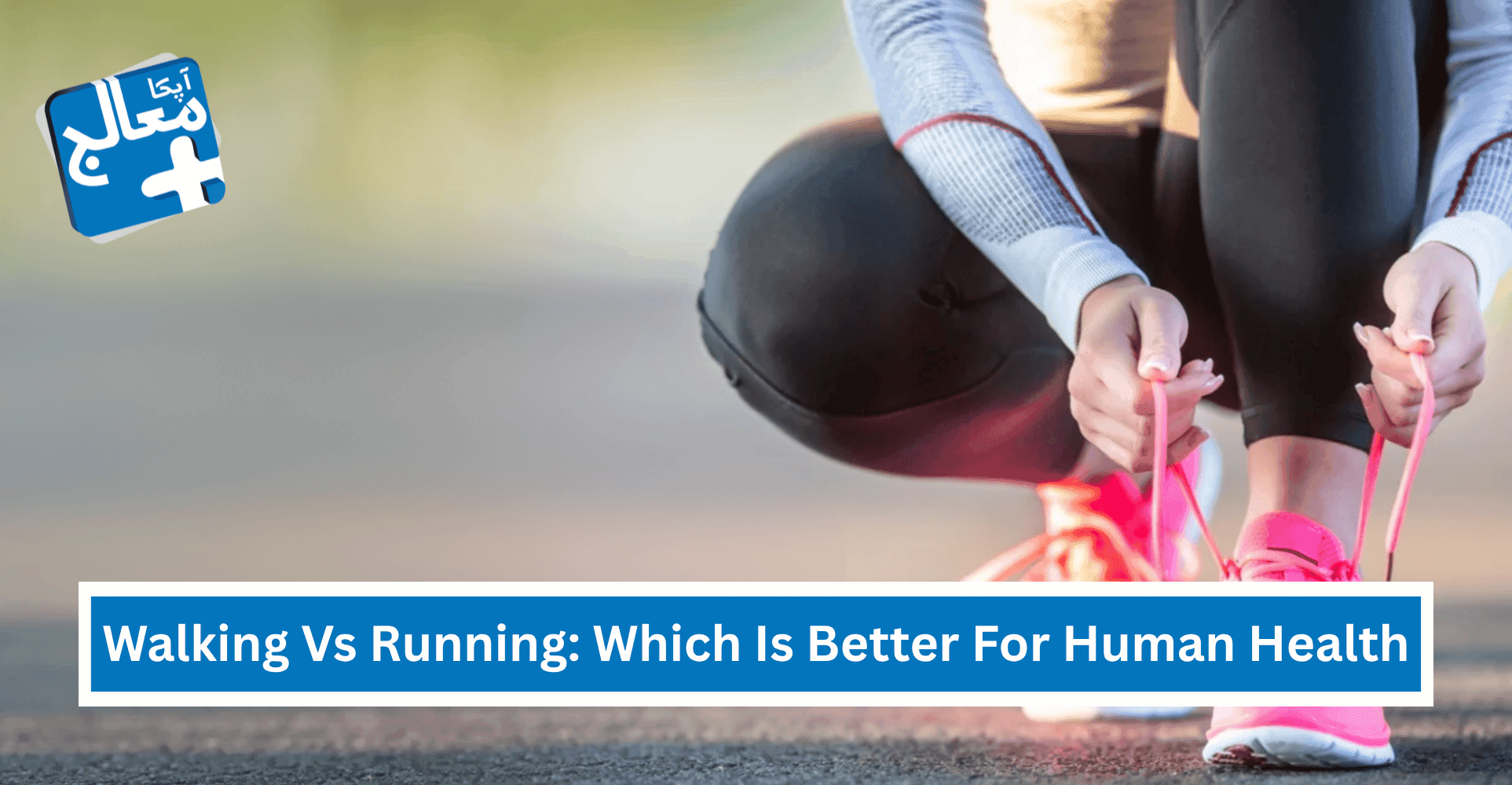Walking Vs Running: Which Is Better For Human Health?

Both walking and running provide various health advantages. Ultimately, the best option depends on your physical condition, fitness goals, and what you genuinely enjoy doing. Looking to get fit without going to the gym, both walking and running contribute meaningfully to overall well-being. When it comes to improving health and aiding weight loss, the debate between walking versus running for health comes up often. Before choosing between the two, it’s important to explore how walking and running are different and which one is beneficial to your health. In the words of a timeless saying,
“It does not matter how slowly you go, as long as you do not stop.” — Confucius.
You may also read: "25 Pro Tips On How To Sleep Better At Night Naturally"
Difference Between Walking and Running
Walking
It involves less impact on the body, where one foot remains on the ground at all times at a slow pace, and the legs almost remain straight. It is easier on the joints and muscles. It is suitable for individuals across all fitness levels. Walking can provide a lot of the same benefits as running.
Running
It involves more impact on the body, where both feet are off the ground for a brief period between strides at a faster pace than walking, and legs are flexed at the knee during the landing phase. It can be good for your cardiovascular and musculoskeletal systems. Running burns around double the number of calories as walking.
Also read: "Top 10 High Zinc-Rich Foods & Why They Are Important"
Benefits of Walking vs Running
Walking vs running for cardio
Some of the health benefits of cardio include:
-
Helps you lose weight or maintain a healthy weight
-
Boosts the immune system
-
Helps prevent or manage chronic conditions
-
Strengthens your heart
-
Can extend your life
-
Good for mental health due to its benefits in reducing anxiety and depression. Both walking and running are great options, but
- Running raises your heart rate faster and keeps it elevated, making it a more intense cardio workout.
It increases your metabolic rate, so you keep burning calories after your workout, even when you’re sitting still.
- Walking still promotes cardiovascular health, especially brisk walking, and is sustainable for longer durations.
It is good for older adults and people who are overweight or affected by chronic conditions like heart disease, diabetes, and obesity.
According to the American Heart Association, 150 minutes of moderate aerobic activity (like brisk walking) or 75 minutes of vigorous activity (like running) each week is enough for heart health.
Walking vs running for weight loss
Some benefits of losing weight are:
-
Lowers the risk of diabetes
-
Improved heart health
-
More energy
-
Better immunity
-
Reduced joint pain
-
Reduce your health risks
Running burns more calories per minute compared to walking. On average:
-
• Running burns about 100 calories per mile
-
• Walking burns about 70 calories per mile
Running may accelerate weight loss when combined with proper intensity and diet, but walking is often more sustainable in the long run, and when it comes to losing weight, consistency matters most.
Also read: "21 Surprisingly Effective Strategies To Prevent Heart Attack"
Walking Vs Running: Which is Better?
Choose walking because:
-
It is easy, continent, and does not require any equipment. It can be a very social activity. Sharing a walk with a friend or loved one can uplift your mood and strengthen emotional bonds.
-
As a low-impact exercise, walking is easy on your joints if you have arthritis or joint issues.
-
It can do it at any fitness level. If you haven’t been focused on your fitness, walking can be a great way to start. As Henry David Thoreau said, “An early morning walk is a blessing for the whole day.”
-
People who have a genetic risk of obesity should start walking daily because it's easy to do, doesn't make you feel tired, and can be maintained for a long time, which helps in managing familial obesity. In the words of G.M. Trevelyan, “I have two doctors, my left leg and my right.”
-
Walking improves your blood circulation, which speeds up cell regeneration and provides a glow to your skin.
-
Ideal post-meal activity: it helps to stimulate digestion, reducing bloating and discomfort.
Choose running because:
-
Running burns more calories as compared to walking and also more rapidly.
-
You can improve your oxygen consumption rate by running, which greatly influences your quality of life as you get older.
“The obsession with running is an obsession with the potential for more and more life.”- George Sheehan. -
Studies have found that those who have high bone density. If your bones retain high density, it can protect you from osteoporosis and osteopenia.
-
Running helps to deal with stress and depression, and the release of endorphins (producing a feeling of euphoria and reduced anxiety) during and after running sessions contributes significantly to improved mood and mental health.
-
Rapid Lowering of cholesterol level by improving heart health and increasing the HDL (High-Density lipoprotein/Good cholesterol).
-
It increases sweat detoxification and boosts oxygen flow, which can enhance skin tone.
-
Regular running can enhance immune response and help to reduce the risk of infections.
Discover our latest articles and insights about fitness and a healthy lifestyle
Are There Any Walking and Running Risk Factors?
- Risk of injury: while running risk of injury is more than when walking
-
Balance-related risk: As in walking, your pace is low, so it reduces the risk of tripping or slipping rather than running.
-
Heart health: Walking is good for those who have heart issues.
-
Impact on the joint: Walking is a better option for those who have bone disease than running.
-
Fatigue: Intense running without rest may result in fatigue than walking.
Risk factors are related to your health condition and body needs. For some people, running is a good option, while for others, walking is a suitable choice.
Also, go through: "How To Control Sexual Desire Before Marriage?"
In The End
Whether you choose to walk or run, the most important concern is getting started. It’s not about pace or mileage; it’s about showing your interest in your health every day. Walk, run, or do both, just keep moving.
Whether walking or running is the safer and more effective option for your body, you can consult with a physiotherapist near you by visiting www.apkamuaalij.com. For a quick consultation, dial 0423-2377001 and book your doctors through Apka Muaalij, the best telehealth platform in Pakistan.
Frequently Asked Questions (FAQs)
Why is walking better than running for weight loss?
Because it's easier to maintain consistently without risking injury, making long-term weight loss more achievable.
What is the speed difference between walking and running?
Walking averages 3–4 mph, while running ranges from 6–10 mph.
Is running 10,000 steps the same as walking?
No, running 10,000 steps burns more calories and elevates your heart rate more than walking the same steps.
What are the disadvantages of running?
It carries a higher risk of injury due to its high-impact nature.
Do I burn more calories running or walking?
Running burns significantly more calories per minute and mile than walking.
How much walking per day?
Aim for at least 7,000–10,000 steps or 30–60 minutes daily.
Does walking burn belly fat?
Yes, walking helps reduce overall body fat, including visceral (belly) fat, when done consistently.
How much walking per day?
Walking 30 to 60 minutes a day is ideal for general health and weight management.
How many calories do 20k steps burn?
Walking 20,000 steps can burn approximately 800 to 1,300 calories.

Dr. Bisma Shehzadi
Dr. Bisma Shehzadi, Pharm.D, RPh, is working as a professional seasoned content writer with 4 years of experience in healthcare and wellness writing. With a strong pharmaceutical background and clinical knowledge, she creates research-driven, search-optimized articles that simplify complex medical topics. Her writing enables her to craft content that educates, promotes wellness, and supports healthcare initiatives among online users and readers.